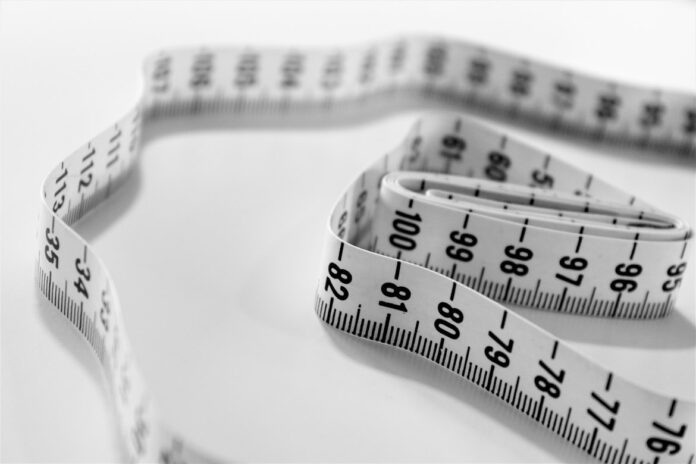One of the hardest things to keep around is the ideal weight. It’s not impossible but more and more people are having issues with their weight. Today it’s the age of fast food and sweets and it is hard to resist them.
When you add lack of working out to the mix you can easily get overweight. Luckily, you can always lose weight, and get back to your regular one, but it takes time and hard work. The most essential thing to do and achieve this is to have an eating plan.
Our bodies are demanding and you need to put the effort forward and create balanced nutrition which will give you enough calories and energy to go through your daily routines. Balance is the key and thus it is hard to achieve it out of the blue.
So, you need to be careful what and when you eat, in order to keep yourself healthy and your weight in line. That’s why we’re going to tell you about things to have in mind when personalizing your diet plan. As you’ll see, it’s not too complicated, but discipline matters and dedication is required.
1. Goals

For some people getting rid of carbs will help them lose fat. It is a great way to go about this, and get abs, or get bulked, but that might not be your goal. Depending on your goals, you should determine what to intake and what to throw away from your eating routine.
For example, if you are a runner, and like to have long runs, or even plan to attend a marathon, you’ll need carbs to give you energy. So, what are your goals? Do you want to get bigger muscle-wise, or just maintain weight, or is it about cutting a massive amount of weight?
All of this matters. So, when it comes to what you won’t think about the appropriate diet plan. All of these things are different and will require different nutrition. A calorie deficit means that you want to lose weight. If you want to build up muscle through your diet you’ll have to up the amount of food you intake.
But, having the right choices about what you eat, also requires you to be careful. If the goal is to maintain your current weight, you’ll need a stricter balance between eating and exercising.
2. Genetic Predispositions

Not all of us are the same. People often talk about healthy foods. But depending on your genetics, some foods classified as healthy might not do the trick for you. In recent years the science of food and eating has improved in this department, and it’s possible to determine what foods are good for you and which aren’t based on your genetics.
It’s much easier than ever to find the optimal foods for yourself based on your genetic material. There’s plenty left to explore and learn in this department, but knowing a thing or two about your metabolism is possible, and the genes behind processing food are more and more familiar to us.
Also, there’s a way to expose your genes by eating certain foods, which is an amazing discovery. This gene expression is better known as epigenetics, and it is quite a fun subject to explore for anyone. If you’re interested in subjects like these and anything else about the food, you can visit this website.
3. Find The Right Foods

Knowing that you need to eat less is one thing, but knowing what to eat in a while is another world. It is even more vital to your diet plan. Before you start seriously working on your eating habits, you need to find the right foods little by little, before you have your whole regimen prepared.
The best plans are those that consist of the foods you like and want to eat. If your plan has too many foods that you don’t like too much, then chances are you’ll fail. Sticking to a plan is essential for a diet plan to work and if it is filled with too many foods you don’t love, you won’t get too far. There are plenty of foods out there that are recommended as great additions to any diet, and your first move should be to try as many as you can.
This way you’ll be quicker to find what suits you best. Having a balanced nutrition plan without too many empty calories is what you should strive for. If you don’t know where to start, the right place is a list that will contain foods that you already like, and then filter them out according to your diet needs.
4. Your Lifestyle is a Factor

Lifestyle is important beyond any measure. Not all of us live the same life, and this has to be factored in the nutrition plan. If you work for eight hours a day and spend an additional two commuting, you should spend approximately forty-five minutes working out a day. With these things factored in, you’re ready to go and choose the diet plan.
Also, you shouldn’t overwork yourself and exercise five days a week. You should go below and take good care about what you eat. With a lifestyle that doesn’t include a lot of hours working or traveling, you probably have more time to work out which will require a different meal plan. Lifestyle matters a lot, and to each, there’s a different food approach waiting.
5. Allergies

Yes, that’s right. Not every food feels good despite tasting good. You need to test yourself for food allergies to see which foods will work for you the best. Once you undergo a food allergy test and even sensitive testing, you’ll have a whole other approach to creating an eating plan.
This move is recommended for anyone regardless of the severity of their plans, which foods to eat and how much weight they plan to lose or gain. The foods that most often cause issues are dairy and gluten. They require a special observation as one Novak Djokovic would tell you. As you can see in the example of the world’s best tennis player, a special diet plan can push you to the top.
Can Supplements Help You With Your Diet Plan?
Supplements, such as Supergut can be a great way to help you make sure that you are getting the nutrients that you need for your diet plan.
Some supplements can help with weight loss, by helping to increase your energy levels and helping to boost your metabolism. They can also help with blood sugar control, by helping to reduce the amount of sugar that you eat.
There are many different types of supplements available, which means that you can find one that is specifically designed for your needs. If you are not sure what type of supplement to take, speak with a doctor or nutritionist about what might be best for you.




